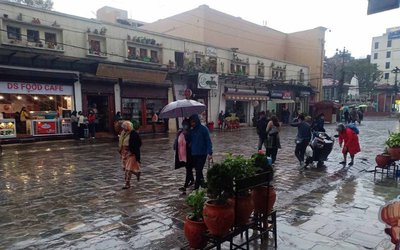A lot of people, including people we may personally know, are subjected to online abuse. It is but not limited to name calling, revenge porn, bullying, rape threats and threats to person or property, stalking, and other kinds of harassment. While a lot of men are also not safe from such kinds of behaviour, it is the women who have, as per many types of research and studies that were undertaken in various countries, projected to feel more unsafe and at risk in comparison.
Many of these attacks are empty threats that are made because of people hiding behind surreptitious identities and anonymous profiles have a tendency to lash out violent words at other people. Moreover, the sheath of invisibility available to them is what motivates them in the first place to go on about hurting people by trolling them. These 'trolls' exhibit this kind of behaviour but this sometimes does go on to the extent of bullying, especially if other people have opinions, not in line with the majority. However, it also comes out of the blue, often insults thwarted at people about their religious backgrounds, personal attacks or comments on their bodies and other features, and such. Like recently in Malaysia, teenagers were made victims of trolling and hate messages for voicing their opinions. They were body shamed and also attacked because of how they chose to not wear a hijab.
This should not matter so much because some people just make others' lives difficult because they can. Moreover, their attacks are not serious threats but limited to crude insults and one can always shut them out by blocking them or reporting them which is a feature available on most social media platforms. More important are those threats of attacks that can get too real too soon. For instance, so many women activists face so many threats across the world. In Australia, so many women have reported harassers running fake profiles of theirs, labelling them as sex workers and with morphed explicit photos. People have their addresses and phone numbers went public and this is scary, to say the least. In Pakistan, a woman was a victim of a drive-by shooting along with her husband after being attacked online prior to that. Even in India the branding of anti-national of a student protester against war was bullied and the entire campaign was trivialised.
Even in Australia, the victims were asked to stay off the internet as a recourse instead of having been provided safety measures, despite the abusers attacking one of the victim's homes. This sort of a solution only perpetuates the feeling of unwelcome and non-safety and trigger mental and emotional trauma amongst the victims. Such attacks should matter and be made important because silence and inaction get misconstrued for consent, for passiveness, and for fear. There’s no reason why anyone should tolerate such behaviour and put up with it because they are not consenting to this attack. These attacks have the potential to grow into something even scarier, something that can leave scarring effects that can last throughout the victims' lives.
Yet, the correct mechanism to deal with this is unknown. People can gather a support system or fight back. Another course that can be adopted is to simply ignore. However, taking that decision of what course of action to employ is difficult not because of lack of cognition but because one can never realise the gravity of such threats made online. Most people ignore them because if they fought back, they would be swarmed with a bunch of other hate messages from a group of other attackers. Nevertheless, if the degree of the gravity of these threats affects people they have been harmed. There should be no distinction between online and offline spaces for people's safety and well-being. More often than not, such offences are taken lightly because people do not usually deem online harassment to be harmful. However, because of the presence of such trolling and abuse, a lot of people are ripped off of their rights to free speech and expression, and cannot freely voice opinions. Moreover, their personal security is at stake and this is a battle that has to be tackled internationally because the internet is a global space and is not limited to one particular geographical terrain.
- Women Empowerment
- Mar 04, 2019
- Can We Escape The Corset?
- Dec 24, 2018
- Do We Need an International Men’s Day?
- Nov 23, 2018
- MeToo Gained Momentum
- Nov 03, 2018
- Are We Fighting Rape Incorrectly?
- Sep 22, 2018















